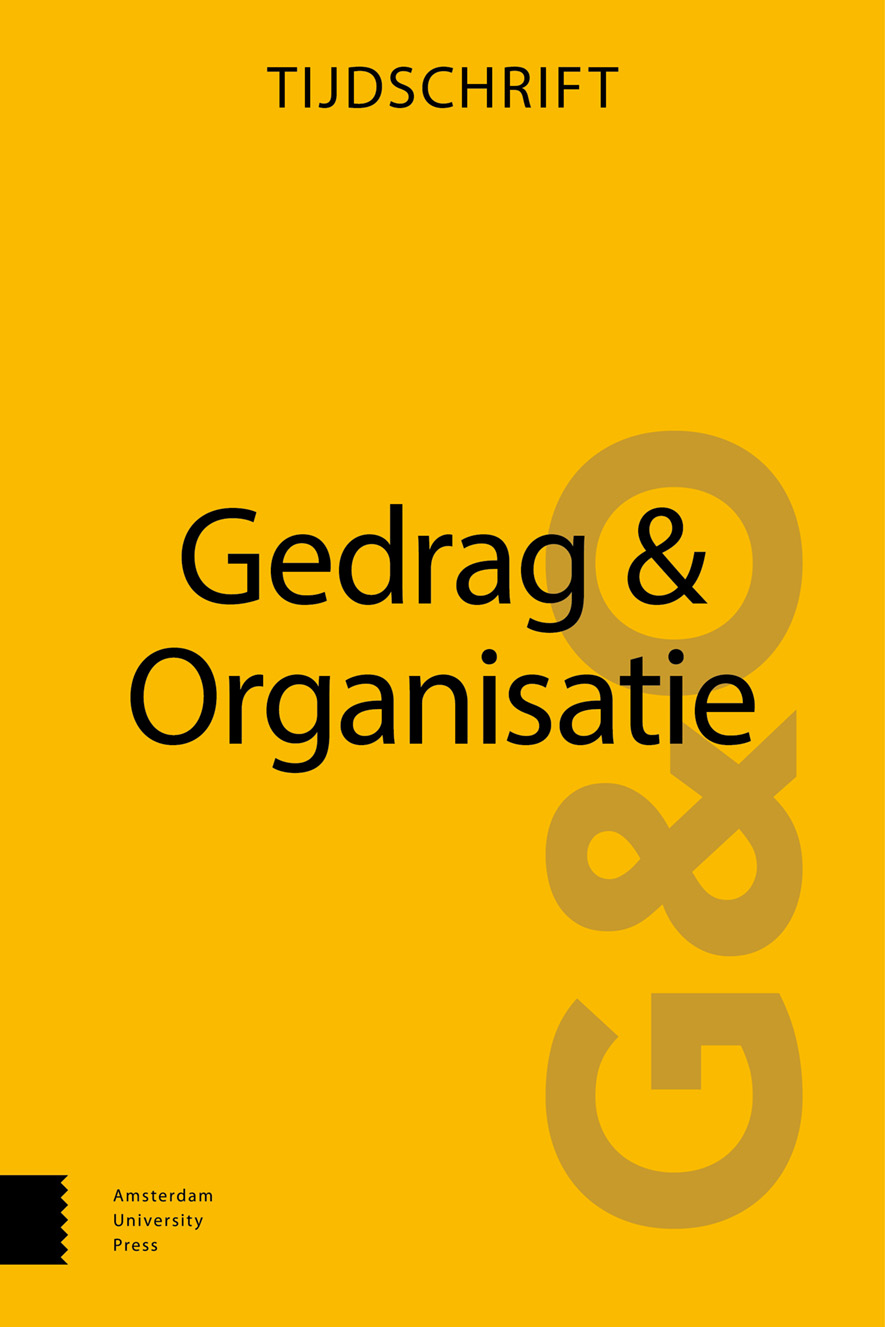-
oa Emotieregulatie en burnout bij ziekenverzorgenden
- Amsterdam University Press
- Source: Gedrag & Organisatie, Volume 21, Issue 2, Jun 2008,
Abstract
Summary
This study analysed whether, amongst health care providers in a nursing homes setting, there is a relationship between, on the hand, work demands, autonomy, lack of social support and emotional labor; and on the other hand, symptoms of burnout. It also analysed whether the concept of emotional labor was an additional factor that helped explain variance in burnout over and above the concepts found in the Demand-Control-Support model. The study was based on 130 health care providers (response rate of 75%). Participants filled in a questionnaire that measured the Demand-Control-Support concepts of autonomy, lack of social support and work demands, as well as four dimensions of emotional labor. It assessed burnout in three dimensions, namely emotional exhaustion, depersonalisation and personal accomplishment. The results showed a relationship between work demands, social support, several aspects of emotional labor and burnout, whereas no relationship was found between autonomy and burnout. The various concepts, taken together, explained 28 to 30% of the variance in burnout. Emotional labor appeared to be a distinct additional factor in relation to burnout, supplementing the elements found in the Demand-Control-Support model. These results confirm the findings from previous studies in other professions. They demonstrate that, in professions involving a lot of contact with patients, emotional labor may represent a potentially important factor related to health.
,Samenvatting
In dit onderzoek werd nagegaan of er een verband bestaat tussen enerzijds werkeisen, autonomie, gebrek aan sociale steun en emotieregulatie en anderzijds verschijnselen van burnout bij ziekenverzorgenden. Daarnaast werd onderzocht of de dimensies van emotieregulatie (emotional labor) meerwaarde hebben in het verklaren van variantie van dimensies van burnout ten opzichte van de concepten van het Demand-Control-Support-model. Het onderzoek vond plaats onder 130 ziekenverzorgenden (respons 75%). De verzorgenden vulden een schriftelijke vragenlijst in waarin de Demand-Control-Support-concepten autonomie, gebrek aan sociale steun en werkeisen en vier dimensies van emotieregulatie werden gemeten. Burnout werd gemeten in drie dimensies, te weten emotionele uitputting, depersonalisatie en persoonlijke bekwaamheid. De resultaten toonden een samenhang tussen werkeisen, sociale steun, meerdere emotieregulatieaspecten en burnout, terwijl er tussen autonomie en burnout geen samenhang gevonden werd. De verschillende concepten konden gezamenlijk 28 tot 30% van de variantie in burnout verklaren. Ook bleek dat emotieregulatie een duidelijke toegevoegde waarde had in de samenhang met burnout, in aanvulling op de elementen van het Demand-Control-Support-model. De resultaten bevestigen hiermee gedeeltelijk de uitkomsten uit eerder onderzoek bij andere beroepsgroepen en laten zien dat zeker bij beroepen waarbij er veel contact plaatsvindt met patiënten, emotieregulatie een potentieel belangrijke, aan gezondheid gerelateerde factor kan vormen.
]

